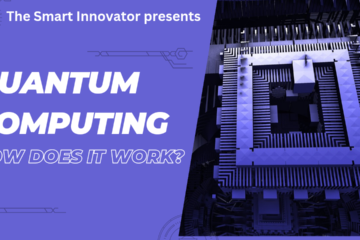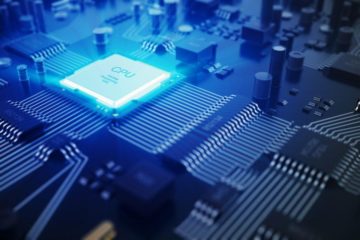Top 10 Quantum Computing Applications You Need to Know About
Quantum computing is one of the most exciting fields of technology today, promising to revolutionize the way we process and analyze data. Unlike classical computers, which rely on binary digits or bits (either 0 or 1), quantum computers use quantum bits or qubits, which can be in multiple states simultaneously. This allows quantum computers to perform complex calculations that are beyond the reach of classical computers. In this article, we will explore the top 10 real-world applications of quantum computing that are already making an impact in various industries.

Quantum Computing Applications
Quantum computing, a groundbreaking field at the intersection of physics and computer science, promises to revolutionize the way we process information. While large-scale, fault-tolerant quantum computers are still in the developmental stage, researchers are exploring various applications that could reshape industries. In this article, we delve into the top 10 potential quantum computing applications and their transformative impact on diverse fields.
1. Drug Discovery:
Drug discovery is a complex process that involves identifying potential drug candidates and testing them for their efficacy and safety. Quantum computing can significantly speed up this process by modeling the interactions between molecules and predicting their behavior, which can save time and resources. For example, IBM’s quantum computing platform has already been used to simulate the behavior of the small molecule lithium hydride.
Simulating molecular interactions and predicting material properties are computationally intensive tasks. Quantum computers can simulate quantum systems more accurately, accelerating drug discovery processes and revolutionizing materials science by designing new materials with specific properties.
2. Climate Modeling:
Quantum computing can also be used to model complex systems such as climate patterns and weather forecasting. This can lead to better predictions and more accurate models, which can help us better understand the impact of climate change and develop effective strategies to mitigate it.
Understanding and mitigating the impacts of climate change require sophisticated simulations. Quantum computers can model complex environmental systems more accurately, aiding in climate prediction and the development of sustainable solutions.
3. Optimization Problems:
Optimization problems are a common challenge in many industries, from logistics to finance. Quantum computing can help solve these problems faster and more efficiently than classical computers. For example, Volkswagen has used quantum computing to optimize traffic flow in cities and reduce travel time for commuters.
Quantum computers excel at solving optimization problems, such as finding the most efficient route for delivery trucks or optimizing financial portfolios. This capability could have profound implications for industries that rely on complex decision-making processes.
4. Cybersecurity:
Quantum computers can break many of the encryption techniques that are currently used to secure data, which makes them a potential threat to cybersecurity. However, quantum computing can also be used to develop new encryption techniques that are more secure than the current ones. For example, researchers at the University of Bristol have developed a quantum key distribution system that is virtually unbreakable.
5. Financial Modeling:
Quantum computing can be used to model financial systems and analyze the behavior of financial markets, which can help identify patterns and trends. This can lead to better investment strategies and risk management.
Quantum computers can analyze vast datasets and simulate complex financial scenarios more efficiently. This could revolutionize risk assessment, portfolio optimization, and the modeling of intricate financial instruments
6. Materials Science:
Quantum computing can also be used to model the behavior of materials and predict their properties. This can lead to the development of new materials with specific properties that are useful in various industries, from electronics to medicine.
7. Supply Chain Optimization:
Quantum computing can help optimize supply chain management, from inventory management to transportation planning. This can lead to cost savings and improved efficiency in various industries, from manufacturing to retail.
8. Machine Learning:
Quantum computing can be used to develop more powerful machine learning algorithms, which can lead to better predictions and more accurate models. For example, researchers at Google have developed a quantum machine learning algorithm that can identify objects in images with high accuracy.
Quantum computing can enhance machine learning algorithms, providing exponential speedup for certain tasks like pattern recognition and optimization. Quantum machine learning has the potential to outperform classical counterparts in specific domains.
9. Traffic Optimization:
Quantum computing can also be used to optimize traffic flow and reduce congestion in cities. This can lead to reduced travel time and improved air quality. For example, researchers at D-Wave Systems have used quantum computing to optimize traffic flow in Los Angeles.
Managing urban traffic efficiently is a daunting task. Quantum computers can analyze numerous variables simultaneously, offering solutions to traffic optimization problems that consider real-time data and various influencing factors.
10. Cryptography and Security:
Quantum computing can be used to develop new cryptographic techniques that are more secure than the current ones. For example, researchers at the University of Oxford have developed a quantum random number generator that is more secure than traditional random number generators.
Quantum computers have the potential to crack widely used cryptographic methods due to their ability to perform complex factorization exponentially faster than classical computers. On the flip side, they can also enable the creation of quantum-safe cryptographic algorithms, ensuring secure communication in a post-quantum world.
Open source quantum computing applications
- Qiskit (IBM Quantum): Developed by IBM, Qiskit is an open-source quantum computing software development framework. It provides tools for creating and manipulating quantum programs and executing them on IBM’s quantum processors or simulators.
- Cirq (Google): Cirq is an open-source framework for designing, simulating, and running quantum circuits on Google’s quantum processors. It is particularly focused on providing low-level operations for more experienced quantum programmers
- Forest (Rigetti Computing): Rigetti Computing’s Forest is an open-source quantum computing SDK. It includes tools for writing and running quantum programs using Rigetti’s quantum processors and simulators.
- ProjectQ: ProjectQ is an open-source quantum computing software framework that focuses on high-level quantum programming. It allows users to write quantum algorithms using a syntax close to the mathematical notation.
- Quipper: Quipper is a quantum programming language for expressing quantum algorithms. It is embedded in Haskell, a functional programming language. Note that development on Quipper may not be as active as other frameworks.
- OpenQASM (Qiskit): OpenQASM is an open-source quantum assembly language that is part of the Qiskit framework. It allows users to express quantum circuits using a simple textual representation.
- QuTiP (Quantum Toolbox in Python): QuTiP is an open-source Python library for simulating the dynamics of open quantum systems. While it is not specifically designed for quantum computing, it is a valuable tool for quantum information science and quantum optics.
Free quantum computing applications
Several free quantum computing applications and platforms are available for individuals interested in exploring quantum computing.
- IBM Quantum Experience: IBM offers a free cloud-based quantum computing platform called IBM Quantum Experience. Users can access quantum processors and simulators, run quantum experiments, and explore the principles of quantum computing. The platform also includes Qiskit, IBM’s open-source quantum computing framework.
- Microsoft Quantum Development Kit: Microsoft provides a free Quantum Development Kit, which includes the Q# programming language and the Quantum Development Kit libraries. Users can simulate quantum algorithms and experiment with quantum programming concepts.
- Google Quantum Computing Playground: Google’s Quantum Computing Playground is an online tool that allows users to experiment with quantum circuits in a visual environment. It’s a simple and intuitive way for beginners to understand the basic principles of quantum computing.
- Rigetti Forest: Rigetti Computing offers free access to their quantum processors and simulators through the Forest platform. Users can sign up for a free account and use Forest to run quantum programs on Rigetti’s quantum processors or simulate quantum circuits.
- Quantum Inspire: Quantum Inspire is an online quantum computing platform that provides access to a quantum processor and simulator. It is designed for educational purposes and allows users to experiment with quantum algorithms.
- Quirk (by Google): Quirk is a free, browser-based quantum circuit simulator developed by Google. Users can design and simulate quantum circuits in a drag-and-drop interface, making it a useful tool for learning about quantum gates and algorithms.
Cloud quantum computing applications
- IBM Quantum Experience: IBM Quantum Experience is a cloud-based platform that provides access to IBM’s quantum processors and simulators. Users can run quantum experiments, develop quantum algorithms using Qiskit (IBM’s quantum programming framework), and explore educational resources.
- Microsoft Quantum Development Kit on Azure: Microsoft Azure provides a Quantum Development Kit that includes Q#, a quantum programming language, and quantum computing libraries. Users can access quantum simulators and resources for developing and simulating quantum algorithms in the Azure cloud environment.
- Google Quantum Computing Services: Google offers cloud-based access to its quantum processors and simulators. While specific offerings may vary, Google Cloud provides resources for quantum computing, including tools for developing and running quantum algorithms.
- Rigetti Quantum Cloud Services: Rigetti Computing provides a cloud-based platform that allows users to access quantum processors and simulators. The Rigetti Quantum Cloud Services enable users to run quantum programs, test algorithms, and access quantum computing resources.
- D-Wave Leap: D-Wave Leap is a cloud-based service offered by D-Wave Systems, which provides access to their quantum annealing processors. Users can formulate problems and submit them to D-Wave’s quantum computers to find solutions using quantum annealing.
- IonQ Quantum Cloud: IonQ offers a cloud-based platform that provides access to trapped-ion quantum processors. Users can access IonQ’s quantum computers through the cloud, run quantum algorithms, and explore the capabilities of trapped-ion quantum computing.
How will quantum computing affect artificial intelligence applications?
Quantum computing has the potential to significantly impact artificial intelligence (AI) applications in various ways. While the full extent of these impacts is still a subject of ongoing research and development, here are several ways in which quantum computing could influence AI:
- Speeding up Machine Learning Algorithms:
Quantum computers can potentially speed up certain types of machine learning algorithms. Quantum algorithms, such as quantum support vector machines and quantum principal component analysis, may provide faster solutions to optimization problems commonly encountered in machine learning. - Quantum Machine Learning:
Quantum machine learning is an emerging field that explores the integration of quantum computing principles into machine learning algorithms. Quantum computers could enhance the efficiency of tasks such as pattern recognition, optimization, and clustering, leading to more powerful AI models. - Solving Complex Optimization Problems:
Many AI applications involve solving optimization problems, such as finding the optimal parameters for a neural network. Quantum computers are theoretically capable of solving certain types of optimization problems exponentially faster than classical computers, which could lead to more efficient AI training processes. - Simulating Quantum Systems:
Quantum computers are inherently suited for simulating quantum systems, which classical computers find challenging due to the exponential growth in complexity. This capability is particularly relevant for understanding molecular structures and reactions, potentially benefiting applications in drug discovery and materials science. - Enhancing Natural Language Processing:
Quantum computing could potentially improve the efficiency of natural language processing tasks, including language translation, sentiment analysis, and speech recognition. Quantum algorithms may provide speedup for certain linguistic and optimization challenges associated with these tasks. - Improved Optimization for AI in Finance:
Quantum computers may excel at solving complex financial optimization problems, such as portfolio optimization and risk analysis. This could have implications for algorithmic trading and other financial applications of AI. - Security and Cryptography:
Quantum computing could have both positive and negative impacts on AI in terms of security. On the one hand, quantum-resistant cryptographic algorithms may be needed to secure AI systems against potential threats from quantum computers. On the other hand, quantum key distribution could provide new ways to secure communication within AI systems.
Quantum computing in AI is still in the early stages, and many technical challenges need to be overcome. Quantum computers are highly sensitive to errors and require error correction techniques, which poses a significant engineering challenge. Additionally, the true potential of quantum computing for AI will likely depend on advancements in both hardware and software tailored to quantum architectures.
As the field progresses, collaborations between quantum computing researchers and AI practitioners will likely lead to innovative solutions and applications that leverage the unique capabilities of quantum computers.
What are the real life applications of quantum cryptography?
Quantum cryptography leverages the principles of quantum mechanics to secure communication channels. Unlike classical cryptographic methods, which rely on the complexity of mathematical problems, quantum cryptography offers unique features that make it potentially more secure. Real-life applications of quantum cryptography include:
Quantum Key Distribution (QKD):
QKD is one of the most prominent applications of quantum cryptography. It enables two parties to establish a secret key for secure communication using a quantum channel. Any attempt to intercept the key introduces disturbances that can be detected, providing a mechanism for secure key exchange.
- Real-Life Application: Securing communication channels in critical sectors such as government, military, finance, and healthcare where maintaining the confidentiality and integrity of sensitive information is crucial.
Secure Communication Networks:
Quantum cryptography can be applied to create secure communication networks. By integrating QKD into network infrastructures, organizations can ensure the confidentiality of data transmitted between multiple parties.
- Real-Life Application: Quantum-secured communication networks can be used in banking systems, secure government communications, and other scenarios where protecting the integrity and privacy of transmitted data is paramount.
Quantum-Safe Cryptography:
While not strictly quantum cryptography, quantum-safe or post-quantum cryptographic algorithms are designed to resist attacks by both classical and quantum computers. Quantum-safe cryptographic methods are crucial for protecting data against potential threats from quantum computers.
- Real-Life Application: Implementing quantum-safe cryptography in current systems to prepare for the future when quantum computers may pose a threat to classical cryptographic algorithms.
Quantum Random Number Generation:
Quantum cryptography can be used to generate truly random numbers, a fundamental requirement for cryptographic protocols. Quantum random number generators exploit the inherent randomness in quantum processes to generate unpredictable sequences.
- Real-Life Application: Enhancing the security of encryption keys and cryptographic protocols by incorporating quantum-generated random numbers, which are theoretically impossible to predict.
Tamper Detection:
Quantum cryptography can be used for tamper detection in communication systems. Any attempt to intercept or manipulate quantum-encrypted information will disturb the quantum states, alerting the parties involved.
- Real-Life Application: Detecting and preventing eavesdropping or tampering with sensitive data during transmission, ensuring the integrity and security of communication.
Quantum-Secured Cloud Computing:
Quantum cryptography can enhance the security of cloud computing environments by providing secure key exchange and communication between cloud servers and clients.
- Real-Life Application: Protecting the confidentiality and privacy of data stored and processed in cloud environments, particularly for applications involving sensitive information such as healthcare records or financial transactions.
It’s important to note that while the principles of quantum cryptography have been demonstrated in laboratory settings, practical implementations and widespread adoption are still evolving. Challenges such as distance limitations and the need for robust quantum hardware must be addressed for quantum cryptography to become a mainstream technology. Nonetheless, ongoing research and advancements suggest a promising future for quantum cryptography in enhancing the security of communication systems.
What are the 10 companies that use quantum computers?
| Company | Quantum Initiative | Description |
|---|---|---|
| IBM (International Business Machines Corporation) | IBM Quantum Expeirence | Offers cloud-based access to quantum processors, actively involved in quantum hardware and software development. |
| Google (Alphabet Inc.) | Quantum AI lab | Achieved quantum supremacy with the Sycamore processor, working on advancing quantum hardware and algorithms. |
| Microsoft Corporation | Microsoft Qauntum Developement Kit | Actively involved in quantum computing research, offers the Quantum Development Kit with Q#. |
| Rigetti Computing | Rigetti Quantum Cloud Services | A startup working on developing quantum computers, provides cloud access to quantum processors. |
| D-Wave Systems Inc. | Leap | Known for quantum annealing processors, offers cloud access to quantum processors through the Leap service. |
| IonQ | IonQ Quantum Cloud | Focuses on trapped-ion quantum computing, provides access to quantum processors through the IonQ Quantum Cloud. |
| Honeywell Quantum Solutions | – | Develops trapped-ion quantum computers, engaged in both quantum hardware and software development. |
| Alibaba Group | Alibaba Quantum Laboratory | Invests in quantum computing research and development, Alibaba Quantum Laboratory explores quantum technologies. |
| Intel Corporation | – | Involved in quantum computing research and development, focusing on developing superconducting qubits. |
| Quantum Circuits Inc. (QCI) | – | A startup focused on developing superconducting quantum processors, aims to build scalable and fault-tolerant systems. |
Benefits of quantum computing
Quantum computing offers several potential benefits that distinguish it from classical computing, especially for certain types of problems. While practical, large-scale quantum computers are still in the early stages of development, researchers anticipate various advantages once the technology matures. Some of the key benefits of quantum computing include:
Exponential Speedup for Certain Algorithms:
Quantum computers can perform certain computations exponentially faster than classical computers. Algorithms designed for quantum computers, such as Shor’s algorithm for factoring and Grover’s algorithm for search, demonstrate a significant speedup compared to their classical counterparts.
Solving Complex Optimization Problems:
- Quantum computers excel at solving optimization problems, particularly those involving a large number of variables or possible solutions. This capability has implications for fields such as logistics, finance, and operations research.
Simulating Quantum Systems:
- Quantum computers are well-suited for simulating quantum systems, which is a computationally intensive task for classical computers. This capability has applications in understanding molecular structures, chemical reactions, and materials science.
Enhanced Machine Learning and Data Analysis:
- Quantum computing has the potential to accelerate certain machine learning algorithms and data analysis tasks. Quantum machine learning algorithms could provide advantages in tasks such as pattern recognition, optimization, and classification.
Quantum Key Distribution for Secure Communication:
- Quantum Key Distribution (QKD) enables secure communication by leveraging the principles of quantum mechanics. QKD offers a fundamentally secure way to exchange cryptographic keys, as any attempt to eavesdrop on the communication can be detected.
Increased Cryptographic Security:
- Quantum computers have the potential to break widely used cryptographic schemes, such as RSA and ECC, due to their ability to efficiently factor large numbers. However, the development of quantum-resistant cryptographic algorithms could enhance security in the post-quantum era.
Improved Parallelism:
Quantum computers can process multiple possibilities simultaneously, thanks to the principle of superposition. This inherent parallelism can be advantageous for certain algorithms and computations.
Efficient Quantum Simulation:
- Quantum computers can efficiently simulate other quantum systems, allowing researchers to study and understand quantum phenomena more effectively. This capability has implications for advancements in quantum chemistry, physics, and materials science.
Quantum Error Correction:
- Quantum computers can employ error correction techniques to mitigate the impact of quantum decoherence and errors introduced during computation. Quantum error correction is essential for building reliable and scalable quantum computers.
Potential Impact on Fields Like Artificial Intelligence:
- Quantum computing may have a transformative impact on artificial intelligence, enabling faster training of machine learning models and solving complex optimization problems commonly encountered in AI applications.
It’s important to note that while quantum computing holds tremendous promise, practical and scalable quantum computers are still being developed. Overcoming challenges such as quantum error correction, maintaining qubit coherence, and scaling quantum systems are crucial for realizing the full potential of quantum computing. Ongoing research and advancements in the field aim to address these challenges and unlock the broader benefits of quantum computing.
Future of quantum computing
The future of quantum computing holds exciting possibilities and challenges as researchers and companies work towards realizing the potential of this groundbreaking technology. While predicting the future with certainty is challenging, several key trends and developments are expected in the evolution of quantum computing:
Advancements in Quantum Hardware:
- Research and development in quantum hardware are expected to continue, leading to the creation of more robust and scalable quantum processors. Improvements in qubit coherence times, error rates, and the number of qubits are essential for building practical and powerful quantum computers.
Quantum Error Correction:
- Quantum error correction techniques will play a crucial role in making large-scale quantum computations more reliable. Developing effective error correction codes and implementing fault-tolerant quantum gates are active areas of research.
Increased Qubit Count:
- The number of qubits in quantum processors is expected to increase significantly. As quantum computers with higher qubit counts become available, they will be capable of solving more complex problems and simulating larger quantum systems.
Hybrid Quantum-Classical Systems:
- The development of hybrid quantum-classical systems, where quantum processors work in tandem with classical computers, is anticipated. These systems could leverage the strengths of quantum computers for specific tasks while utilizing classical computers for others.
Quantum Cloud Computing:
- Quantum cloud services are likely to become more prevalent, allowing researchers, scientists, and businesses to access quantum processors and simulators remotely. Cloud-based platforms will facilitate broader experimentation and development in quantum computing.
Quantum Software Ecosystem Growth:
- The quantum software ecosystem is expected to expand, with the development of more sophisticated quantum algorithms, programming languages, and quantum application libraries. This growth will make it easier for researchers and developers to work with quantum computers.
Applications in Drug Discovery and Material Science:
- Quantum computers are expected to have a significant impact on fields such as drug discovery and materials science. The ability to simulate molecular structures accurately could lead to the discovery of new drugs and materials with unique properties.
Quantum Machine Learning:
- Quantum machine learning algorithms are likely to be developed further, enabling the acceleration of certain machine learning tasks on quantum hardware. Quantum algorithms may offer advantages in optimization, pattern recognition, and data analysis.
Quantum Communication Networks:
- Quantum communication networks, including quantum key distribution (QKD), may become more widespread. These networks offer secure communication channels, and advancements in quantum communication could enhance the security of information exchange.
Integration with Artificial Intelligence:
- The intersection of quantum computing and artificial intelligence is expected to deepen. Quantum computing could be applied to enhance machine learning algorithms, optimization problems in AI, and simulation tasks relevant to AI research.
Commercialization and Industry Adoption:
- The commercialization of quantum computing technology is likely to progress, with more companies investing in quantum research and development. As quantum computers become more practical, industries may adopt quantum solutions to solve specific problems.
It’s important to note that the timeline for achieving certain milestones in quantum computing is uncertain, and overcoming technical challenges remains a significant focus for researchers and engineers. However, the continuous progress in the field suggests a promising future for quantum computing and its transformative impact on various industries and scientific disciplines.
Conclusion
The potential applications of quantum computing are vast and transformative, spanning industries and reshaping the landscape of computational problem-solving. As quantum computers continue to evolve, we anticipate breakthroughs in these applications, ushering in a new era of technological advancement. While challenges like maintaining qubit stability and mitigating errors persist, the trajectory of quantum computing suggests a future where these applications become integral to our daily lives. Stay tuned as researchers and engineers push the boundaries of what’s possible in the quantum realm.
Frequently Asked Questions
Quantum computing, a groundbreaking field at the intersection of physics and computer science, promises to revolutionize the way we process information.
Google claimed to have achieved quantum supremacy in late 2019 with its 53-qubit Sycamore processor.
Drug Discovery, climate change analysis etc. are the best example for quantum computing.








0 Comments